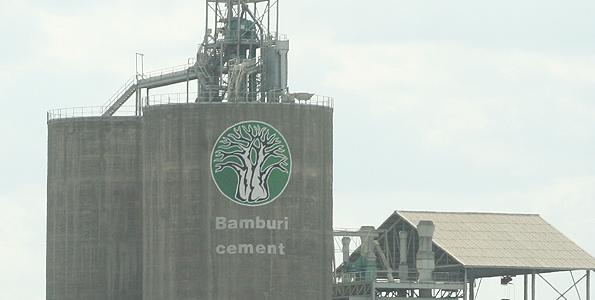Bamburi Cement has posted a 37% shrink in profit after tax to Ksh359 million for the full year ended December 2019 against the Ksh572 million posted at a similar period the previous year. The manufacturer’s audited financial results show.
The company’s turnover stood at Ksh36.7 billion versus the previous year’s Ksh37.2 billion, a 1.1% negative correction which the company attributes to the inability to access the Rwandan market through its Ugandan subsidiary Hima Cement and shelving of the construction of Phase 2B of the Standard Gauge Railway (SGR).
Group Managing Director Seddiq Hassani also attributes the dwindling revenues to a decrease in selling prices fuelled by the existence of “too many players” in the East African market.
However, one glaring aspect about Bamburi’s results is that the company’s taxation costs increased from Ksh48 million in 2018 to Ksh369 million in 2019.
“Both Bamburi Cement Limited (Bamburi) and Hima benefited from investment deduction allowances after commissioning the capacity expansion projects. In 2019, only Bamburi continued to enjoy the residual allowances as Hima’s was only applicable to 2018,” said Hassani in a statement.
“The absence of the investment deduction allowance benefit for Hima in 2019, plus the suspension of Rwanda operations, led to a higher tax charge in 2019 due to the amortisation of the associated deferred tax asset, the disallowing for tax purposes of costs associated with the discontinuation of Rwanda operations, and the derecognition of a previously recognised deferred tax asset for Rwanda,” he added
Bamburi joins Scangroup and NCBA in list of companies that have withheld dividend payment with the aim of conserving capital due to the uncertainty birthed by the Coronavus pandemic.
“The outbreak, which has caused a slowdown in business operations across Uganda and Kenya, and a complete lockdown in other parts of the world, may have implications on operating results. As much as both Bamburi and Hima continue to be in operations as at the time of going to publication, it is too early to quantify the risks or full impact on the financial year 2020,” said Hassani.
Highlights
Total Operating costs stood at Ksh35.6 billion versus 2018’s Ksh36.1 billion while operating profit stood at Ksh1.1 billion an increase from the Ksh775 million reported the previous year.
Profit before tax increased during the period under review from the Ksh620 million reported in 2018 to Ksh728 million recorded at the end of 2019.

